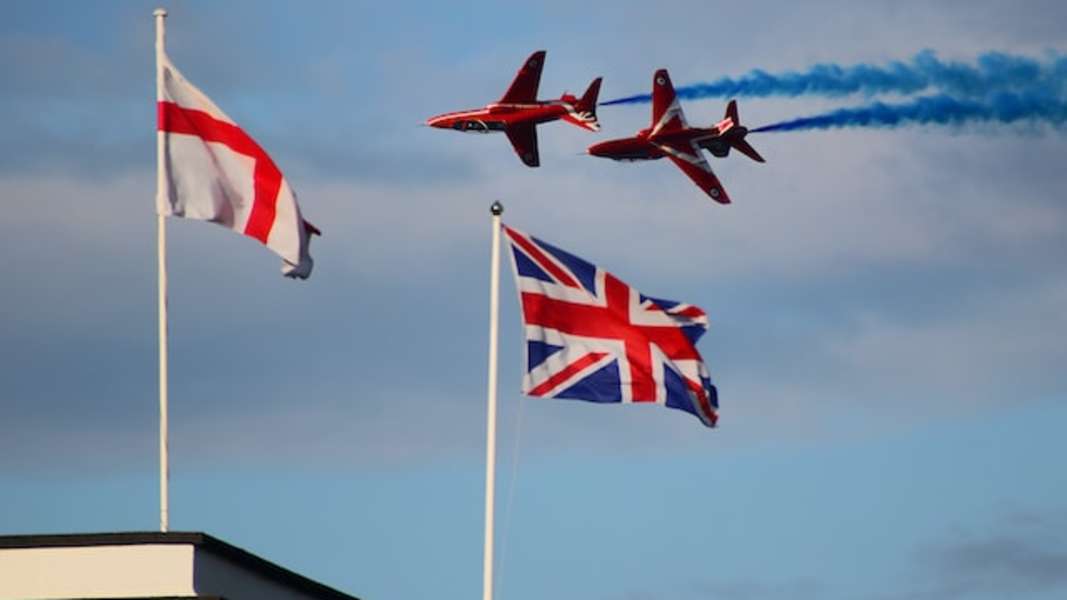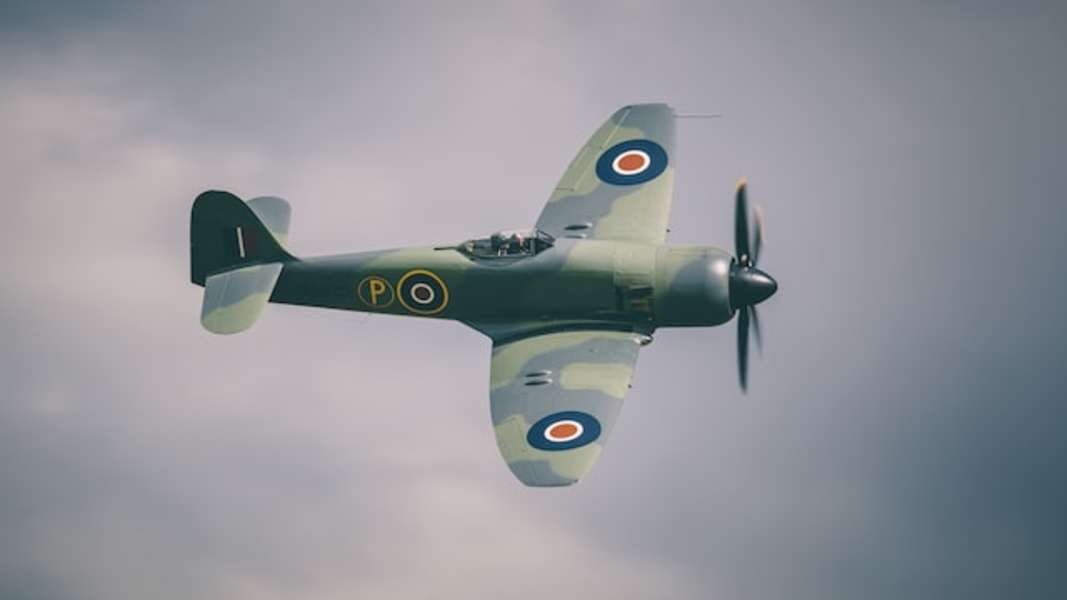What Is The RAF DAA Test?
The RAF DAA test (formally known as AST) is a crucial assessment taken by candidates for the Royal Air Force (RAF). The DAA assessment evaluates candidates in several areas required for a career in the RAF.
The DAA is a collection of aptitude tests that consists of six sections. Each section focuses on a different set of cognitive skills including:
- Verbal reasoning
- Numerical reasoning
- Problem-solving (work rate)
- Spatial reasoning
- Mechanical and technical reasoning
- Memory and recollection
RAF aptitude tests help determine the trades and placements you will be offered upon completion of the application process as they identify strengths and weaknesses across a range of different skills such as problem-solving, numerical skills, and memory.
There is no special training or education that needs to be completed before the tests - instead, candidates only need basic secondary school-level education to be successful and have different career options.
It is also highly recommended to practice mock DAA tests to become familiar with the format and work on improving your score.
How Is The DAA Test Structured?
The DAA takes place in an Armed Forces Career Office (AFCO) and is invigilated by an RAF careers officer. The test takes approximately 90 minutes to complete and is separated into six specific sections.
RAF DAA Aptitude Tests
If you are applying to join the Royal Air Force (RAF), you will have to undergo the RAF Defence Aptitude Assessment (DAA) - formally known as the AST (Airman Selection Test).
Roles at the RAF include airmen and airwomen, pilots, non-commissioned aircrew, career officers, engineers, aircrew roles, and more.
RAF DAA Verbal Reasoning Test
The RAF DAA verbal reasoning test includes 20 questions that need to be answered in 15 minutes.
Each question is based on a short passage of text that you must read, understand and analyse to answer the multiple-choice questions.
RAF DAA Numerical Reasoning Test
The RAF numerical reasoning test is separated into two distinct sections. The first section of this psychometric test is on basic arithmetic, based on your knowledge and manipulation of the four basic operators as well as decimals and fractions. There are 12 questions to test your numerical skills that must be answered in 4 minutes. Strong mental maths is helpful during this stage so it's good to get some revision in. Basic math skills are required for this section as it is an important part of being an RAF officer.
In the second section, your interpretation of data is assessed through analysis of tables and graphs and there are 15 questions to be answered in just 11 minutes.
RAF DAA Work Rate Test
The work rate test is specifically to measure how quickly you can work out a code. Candidates are presented with a table that has three rows, one each containing numbers, letters, and shapes.
You will be presented with 20 alternate codes that you need to work out in just 4 minutes.
RAF DAA Spatial Reasoning Test
Spatial reasoning assesses a candidate's ability to understand and manipulate shapes in space.
In the RAF DAA, the spatial reasoning assessment is split into two subsections, the first on 2D shapes (10 questions to be answered in 4 minutes), and the second on 3D shape orientation with 10 questions to be answered in just 3 minutes.
RAF DAA Electrical Comprehension Test
The electrical comprehension section is based on GCSE Physics electrical knowledge, you will be presented with 21 questions based on visual and written information.
In just 11 minutes you will need to demonstrate your ability to understand elementary electrical concepts like the way switches, batteries, and fuses work.
RAF DAA Mechanical Comprehension Test
Mechanical comprehension involves GCSE Physics-level mechanics principles like energy, forces and motion and levers.
Candidates have 10 minutes to answer 20 questions that need analysis of mechanical concepts to answer correctly.
RAF DAA Memory / Recollection Test
In the DAA, your memory is tested in two specific sections. Each section is prepared through a video, with 10 questions to follow.
In the first section, candidates are presented with a sequence of letters and need to recall the order of the letters within the sequence.
In the second, a sequence of blue grids with yellow squares needs to be recalled.
What To Expect At The Armed Forces Career Office AFCO
The assessment is not just about your performance, as you will be taking the test at an Armed Forces Career Office in the United Kingdom. Prepare before the test by making sure you dress appropriately - official RAF guidelines suggest that candidates should be dressed smartly so no trainers or sports clothes. It is always best to arrive early so you can be as prepared as possible and not flustered.
Make sure to bring a photographic ID and any other documents that the recruiter you have spoken to has asked for.
During the assessment yourself, it is important to remember that even the RAF recruiters understand that the test is difficult, and you might not complete all the questions during that 90-minute time frame - very few candidates do.
The DAA is meant to point each candidate at the most appropriate trade for them within the RAF, and although it is challenging, it is important to ensure that each applicant matches the required skills and abilities for RAF careers.
The RAF Recruitment Process
The RAF DAA is just one part of the recruitment process to join the RAF. The recruitment process involves the following stages:
- RAF Aptitude Test (DAA)
- Selection Interviews
- Health Assessment
- Fitness Test
- Pre-Recruit Training
- Acceptance
- Training
You can find out more about the recruitment process at the official RAF website.
Top Tips To Pass RAF Aptitude Tests
1. Practice tests
One of the best ways to prepare for any test is to practice sample test questions. One of the biggest hurdles during the RAF selection process is your performance in the DAA, so it is definitely worth taking time to get familiar with test questions.
One of the most efficient ways to do this is to take practice tests based on the actual RAF tests used in the assessment. Giving yourself plenty of time to practice is advantageous.
As part of your practice, try to focus on the areas that you know are your weaknesses. It is perfectly normal for candidates to have areas of weakness in the aptitude tests, and you can minimise the impact of this through practice.
2. Brush up on mental maths
While the content of these aptitude tests is not meant to be difficult, candidates will need to be fully up to speed on secondary school level education in maths, science and English. This might mean that you need to revisit the principles of GCSE Physics, English and Maths to ensure that you have all the background knowledge you need.
Mental math areas you might want to focus on include:
- Conversions (percentages, decimals, fractions)
- Ratios
- Adding, multiplying, subtracting and dividing
- Reading graphs and charts
3. Practice under timed conditions
The main reason the RAF aptitude tests are so challenging is that they are under very time-restricted parameters.
While the content of the assessment might not be too challenging for most people, the fact that decisions have to be made very quickly - and under test conditions - makes the DAA difficult.
When you are practising the various aptitude tests, the best thing to do is to practice under full test conditions and that includes strict timing.
4. If you get stuck, take a guesstimate
With the strict time limit, you can only spend a limited amount on each question. If you find yourself stuck and unable to answer - there is no value in wasting any more time on the question. Sometimes a guesstimate can be useful. Having multiple-choice options should help you eliminate some of the possible wrong answers.
5. Read test instructions carefully
Everything you need to answer the questions and be successful in the assessment is provided, so be sure to read the instructions carefully.
In the 90-minute RAF aptitude tests, as in other aptitude assessments, specialist knowledge is not important and it is more effective if you forget what you 'think' you know and accept the information that you are given as being true.
In the test, the instructions will let you know exactly how you need to answer the questions so it is important to read them carefully.
What should I wear to my local AFCO?
When attending your local AFCO you should wear smart attire. Do not wear casual clothing such as sportswear, t-shirts, jeans or trainers.
You should seek to make a good first impression by following the clothing rule and presenting yourself in a professional manner.
What happens if you fail the RAF assessment?
If you perform poorly in the RAF aptitude test part of the recruitment process, you may be assigned to a different speciality (with a lower score requirement) than your original chosen career. You will be able to discuss this with a recruiter at the AFCO once you have received your results.
If you are set on a particular role, you may have the chance to retake the assessment. If you fail a second time, you will need to reapply in a couple of years.
What are the RAF CBAT tests and how do you prepare for them?
The RAF CBAT is another recruitment test in the selection process that an applicant must take if they are applying to be commissioned personnel, like a pilot or an intelligence officer. CBAT stands for Computer Based Aptitude Test, and these are taken specifically at RAF Cranwell, whereas the DAA is generally taken at the nearest AFCO.
The CBAT is a number of tests that need to be taken depending on the trade applied for - there are more than 15 tests ranging from the psychomotor ability to strategic task management and short-term memory.
Take a look at our full RAF CBAT guide here.


-1713819630.jpg)
